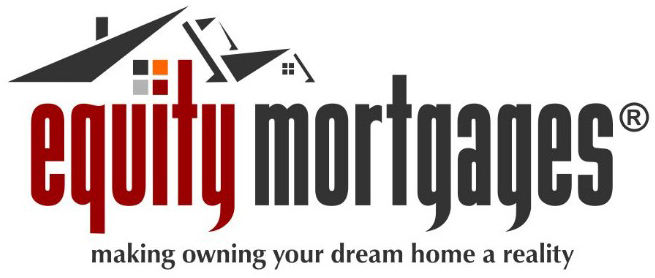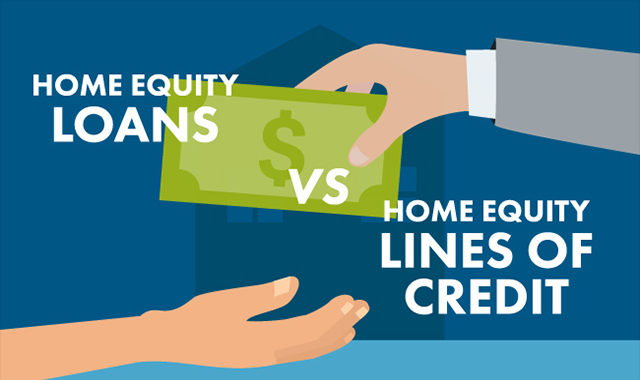How to Prevent Mistakes with Equity Release Mortgages
How to Prevent Mistakes with Equity Release Mortgages
Blog Article
Exploring the Various Kinds of Equity Release Mortgages Available Today
Equity Release home mortgages existing various alternatives for home owners aged 55 and over. equity release mortgages. These monetary items accommodate various requirements and choices, allowing people to access funds from their residential property. From lifetime mortgages to common admiration home mortgages, each type provides distinctive advantages. Understanding these alternatives is vital for making informed decisions. What factors should one take into consideration when selecting the most appropriate equity Release plan? The details that comply with might clarify this vital subject
Understanding Equity Release Mortgages
Equity Release mortgages offer property owners, commonly those aged 55 and over, with a way to access the worth bound in their building without needing to offer it. This financial choice permits individuals to transform a part of their home equity right into cash, which can be utilized for different purposes, such as home enhancements, paying off debts, or financing retirement.Equity Release can take different kinds, however it fundamentally entails loaning against the worth of the home while keeping ownership. Home owners can choose to receive a lump sum or a collection of smaller sized payments, depending on their economic requirements and preferences.Additionally, the amount available for Release is affected by the building's worth, the house owner's age, and specific lending institution requirements. Overall, understanding equity Release home loans is important for homeowners to make informed decisions regarding using their home's equity while thinking about the long-term ramifications.
Lifetime Mortgages
Lifetime home mortgages stand for among the most prominent kinds of equity Release. This financial item enables property owners, commonly aged 55 or older, to obtain versus the worth of their residential or commercial property while preserving ownership. The finance, which is safeguarded against the home, builds up interest gradually yet does not need monthly settlements. Instead, the funding and built up interest are paid off when the property owner dies or moves into long-lasting care.Lifetime mortgages use versatility, as debtors can pick to get a swelling sum or choose a drawdown center, accessing funds as needed. Importantly, several strategies featured a no-negative-equity assurance, making certain that borrowers will certainly never owe even more than the value of their home. This function supplies comfort, allowing people to enjoy their retired life without the concern of depleting their estate. In general, life time mortgages function as a sensible choice for those looking for financial backing in later life.
Home Reversion Plans

Drawdown Life Time Mortgages
While lots of house owners look for means to access their wide range, drawdown life time mortgages present a versatile alternative that allows people to Release funds progressively. This kind of equity Release mortgage allows property owners to borrow against the worth of their home while maintaining possession. Unlike typical life time mortgages, drawdown plans enable borrowers to access a section of their equity upfront and withdraw added funds as required, approximately an established limit.This attribute can be particularly advantageous for those who wish to manage their funds very carefully, as it minimizes passion build-up by only billing rate of interest on the quantities attracted. Additionally, drawdown life time home mortgages often feature a "no negative equity guarantee," making sure that debtors will certainly never owe greater than their home's value. This choice matches retired people that desire financial security and flexibility, allowing them to meet unanticipated expenditures or preserve their way of living without having to offer their property.
Improved Lifetime Mortgages
Improved Life time Home mortgages offer unique advantages for qualified homeowners seeking to Release equity from their homes. Comprehending the eligibility standards is necessary, as it determines that can gain from these specialized loans. It is likewise essential to examine the prospective drawbacks associated with improved choices, guaranteeing an all-around perspective on their usage.
Qualification Standards Discussed
Understanding the qualification criteria for Boosted Life time Mortgages is vital for prospective applicants seeking to access the equity in their homes. Commonly, candidates have to be aged 55 or older, as this age need is conventional in the equity Release market. Home owners must possess a building valued at a minimum threshold, which can vary by lender. Significantly, the building has to be their main residence and in excellent condition. Lenders typically analyze the property owner's wellness condition, as particular health and wellness problems may boost eligibility and benefits. Furthermore, applicants should not have existing significant debts safeguarded versus the property. Satisfying these standards permits people to explore Enhanced Life time Home mortgages as a feasible option for accessing funds bound in their homes.
Advantages of Improved Home Mortgages
After making clear the eligibility standards, it becomes noticeable that Boosted Life time Home loans use numerous considerable benefits for home owners aiming to take advantage of their building equity. Mainly, they supply access to a Discover More larger car loan amount contrasted to basic life time home mortgages, profiting those with health and wellness conditions or age-related aspects that raise their life span danger. This boosted loaning capacity enables home owners to meet various monetary demands, such as home enhancements or retirement expenses. Furthermore, these mortgages typically feature adaptable repayment choices, making it possible for consumers to manage their financial resources more properly. The no-negative-equity assurance even more assures that home owners will certainly never owe more than their building's value, offering satisfaction. In General, Improved Life time Home loans provide a compelling alternative for eligible home owners seeking monetary solutions.
Possible Disadvantages Taken Into Consideration
While Enhanced Lifetime Mortgages use many advantages, possible downsides call for mindful consideration. One substantial worry is the effect on inheritance; the equity launched reduces the worth of the estate delegated beneficiaries. Additionally, these home loans can accrue considerable passion with time, leading to a significant financial debt that may go beyond the initial lending amount. There may additionally be restrictions on building adjustments or rental, restricting homeowners' flexibility. Additionally, improved items frequently require specific health and wellness problems, suggesting not all house owners will certainly qualify. Lastly, managing the charges and costs linked with these home mortgages can be intricate, potentially bring about unforeseen costs. Because of this, individuals should completely analyze their situation and seek advice from economic experts before continuing.
Shared Recognition Home Mortgages
Shared Appreciation Mortgages stand for a distinct financial setup that allows house owners to gain access to equity while sharing future property value boosts with the loan provider. This technique uses prospective benefits such as reduced regular monthly payments, however it also includes drawbacks that must be very carefully considered. Understanding the qualification needs is vital for those thinking about this choice.
Idea Summary
Equity Release home loans, particularly in the form of shared gratitude home loans, offer property owners a special monetary remedy that allows them to gain access to funds by leveraging the worth of their building. In this plan, a lender provides a car loan to the house owner, which is generally paid back via a share of the residential or commercial property's future gratitude in worth. This indicates that when the home owner sells the residential or commercial property or dies, the loan provider obtains a portion of the enhanced value, as opposed to just the initial car loan amount. Shared admiration mortgages can be appealing for those aiming to supplement their income or money considerable expenses while retaining ownership of their home. The financial effects of common recognition have to be very carefully taken into consideration by potential debtors.
Drawbacks and advantages
Although common admiration home mortgages can provide substantial monetary benefits, they also feature noteworthy downsides that potential consumers ought to think about. These home loans allow house owners to accessibility equity in their properties while sharing a section of any kind of future admiration with the loan provider. This arrangement can be advantageous throughout times of climbing residential or commercial property values, providing considerable funds without monthly settlements. The main disadvantage is the possible loss of equity; property owners may end up with considerably reduced inheritance for successors. Additionally, the intricacy of the terms can result in misconceptions regarding repayment obligations and the percentage of gratitude owed. It is crucial for consumers to evaluate these variables very carefully prior to devoting to a common recognition mortgage.

Eligibility Requirements
What requirements must house owners meet to receive a shared recognition home mortgage? Mostly, candidates have to go to least 55 years of ages, assuring they are within the target market for equity Release items. In addition, the building must be their key residence and usually valued above a specified minimum limit, usually around ? 100,000. Lenders additionally assess the homeowner's monetary conditions, consisting of earnings and arrearages, to ascertain they can manage the mortgage properly. Significantly, the building needs to be in great condition and free from significant lawful encumbrances. Home owners should also have a clear understanding of the terms, including just how recognition will certainly be shown the lender upon sale or transfer of the residential property, as this affects general returns.
Picking the Right Equity Release Alternative

Frequently Asked Inquiries
What Age Do I Need to Be for Equity Release?
The age requirement for equity Release generally starts at 55 for a lot of plans. Nonetheless, some suppliers might supply alternatives for those aged 60 and above, reflecting differing terms based upon private conditions and lender plans.
Will Equity Release Impact My Inheritance?
Equity Release can influence inheritance, as the quantity borrowed plus interest minimizes the estate's worth. Heirs may obtain much less than prepared for, depending upon the residential property's gratitude and the overall debt at the my site time of passing.
Can I Relocate Residence With Equity Release?
The question recommended you read of moving residence with equity Release occurs frequently. Usually, individuals can move their equity Release plan to a brand-new home, however particular terms may apply, needing examination with the lending institution for guidance.
Are There Charges Connected With Equity Release Mortgages?
Fees related to equity Release home loans can include arrangement fees, valuation costs, and legal expenses. Furthermore, there might be very early payment charges, which can affect the total expense and financial effects for the debtor.
Just How Does Equity Release Influence My Tax Scenario?
Equity Release can impact one's tax obligation scenario by potentially boosting taxable income, as released funds are thought about resources. Nonetheless, it generally does not incur prompt tax obligations, making it vital to seek advice from a monetary expert for tailored assistance.
Final thought
In recap, the selection of equity Release mortgages available today provides property owners aged 55 and over multiple pathways to access their residential property's value - equity release mortgages. Whether choosing a life time home mortgage, home reversion plan, or various other options, each choice offers distinctive benefits customized to private economic needs. Careful factor to consider and appointment with an economic expert are vital to ensure the selected equity Release service straightens with economic circumstances and personal goals, inevitably facilitating informed decision-making for a secure economic future. Equity Release home loans present numerous choices for home owners aged 55 and over. Equity Release home mortgages give house owners, commonly those aged 55 and over, with a method to access the value linked up in their residential or commercial property without requiring to sell it. Improved Lifetime Home loans offer distinctive advantages for qualified property owners seeking to Release equity from their properties. Equity Release mortgages, especially in the type of common recognition home loans, use property owners a distinct financial solution that allows them to gain access to funds by leveraging the value of their property. In recap, the variety of equity Release home loans offered today supplies home owners aged 55 and over numerous pathways to access their residential property's value
Report this page